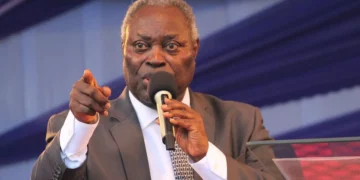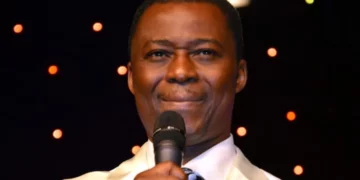I had chosen an aisle seat in order to have easier access to the toilet. So, as the Royal Air Maroc Boeing 777 code shared with Qatar Airways landed, I did not have the opportunity of seeing Casablanca from the air.
The Mohammed VI International Airport is by far superior to the Murtala Mohammed International Airport. Aside from its infrastructural sophistication, the Moroccan officials were courteously welcoming. This welcoming spirit was my default experience throughout my stay in Morocco. As we collected our checked-in luggage, we descended one stair using functional lifts, to the Airport train station. Without hassles, we bought our tickets for Tangiers and were advised to change trains at Casa Voyageurs, two stations away.
At Casa Voyageurs, the lifts worked, helping a very tired me change platforms almost effortlessly albeit with the assistance of my very good friend, Bunmi Makinwa. I had used les trains à grand vitesse (TGV) a.k.a. High-Speed Train from London to Brussels during my UN days. I honestly was not expecting one in Morocco. In two hours, ten minutes, we covered 338 km with two stops for those going to Rabat and Marrakesh.
Leaving the train station and walking to the four-star Hilton as opposed to the five-star one we first diverted to, it was clear we were in a clean and well-manicured city. One of my colleagues during a boss ride jokingly remarked about the washing of the streets overnight. Another colleague spoke about seeing the watering of green spaces (we saw them being used as parks) by the roadside about midnight during a late-night event. Many Euro-American cities cannot compete with Tangiers. I used to think Cape Town, followed by Abuja were the two most beautiful cities in Africa. Not anymore.
Tangiers as a gateway of Europe into Africa has attracted European attention and they took turns to conquer and occupy portions of the city over centuries. On my Facebook page, I had earlier given a picturesque account of touristic Tangiers – a city that has the pride of place as the summer residence of the Moroccan monarch and the birthplace of the famous fourteenth century man of knowledge and adventure, Ibn Battuta.
My visit to Tangiers was not to enjoy the beauty of the city, including its Medina – old city and the general hospitality of the people. I was to participate at two conferences. The first on October 22, 2022, was sponsored by the UN Economic Commission for Africa (UNECA). This was a Pre-Event on “Realising the Triple Nexus and Trade: Towards a New Agenda for Africa”. This meeting discussed a study that UNECA had commissioned and the outcome was planned to feed into the main event which was the, “AU POLICY CONFERENCE Promoting the Peace, Security, & Development Nexus: The Promise of Regional Integration”, October 25-27, 2022.
On October 22nd, Mr. Adeyinka Adeyemi, Senior Adviser, Africa Trade Policy Centre at the UNECA, in his introduction suggested that, in order to realise global peace, one only needs to trade. Appearing not to be too sure of his assertion, he queried if it then means that the higher the global trade, the higher the peace. A critical question that occupied the minds of many participants. Dr. Said Adejumobi, Director, Strategic Planning, Oversight and Results at UNECA, in his opening remarks posed a number of questions, including whether indeed trading countries do not go to war? Whether Africa could trade itself out of poverty? What kind of economic system arises from a conflictual situation since war boosts trade in weapons etc? Are there internal and external shocks for war in Africa? What’s the role of the African Continental Free Trade Area Agreement (AfCFTA) in all these? Can the triple nexus promote human security? These were interesting questions for consideration beyond the confines of the pre-event dialogue.
Ms. Angela Strachan from Jamaica – a country in the sixth Region of Africa (as rightly agreed by the African Union), presented the study she had carried out. The study considered the role of trade agreements in moving fragile unstable states towards regional integration and sustainable development within the framework of the pillars of humanitarianism, development and peace, a.k.a triple nexus. The crucial problem of displacements from wars and disasters in Africa in spite of the protocol on the free movement of persons was considered. The specific adverse ecosystem of the Sahel and instability were highlighted. Though the study had been concluded before the signing of the AfCFTA and the Covid-19 lockdowns, the presentation put on the table the potential problem of leakages of anticipated benefits from the AfCFTA to non-African parties as a result of a possible accession of African countries to the World Trade Organisation. Discussants included Prof. Taye Simbine, the Director-General, Nigerian Institute for Social and Economic Research (NISER), Dr. Therese Azeng, Lecturer, University of Yaounde and my humble self. Interesting contributions that did not challenge the importance of trade for peace were considered. However, many issues were raised questioning whether there is a causal relationship between trade and peace. Or how do we explain the deep trade in energy between Western Europe and Russia and yet there is an ongoing Russo-Ukraine war in which the Europeans are more than observers from the side line? Stephane Asare, agreeing with my emphasis on leadership deficit as Africa’s bane suggested there should be a focus on the deficit in the mental health of African leaders. Dr. Adejumobi, excitedly endorsed this but noted that it is not just an African preserve as he asked us to look at someone in America. As a lawyer, I should know how to avoid easy money being made from me in a litigation if I were to repeat a name known to all. Bunmi Makinwa as Moderator summarised the thrust of the pre-event dialogue. It was agreed that the study needed to be updated in the light of the AfCFTA.
The Policy Conference provided an array of leaders that started with the Chief-Host, the Minister of Foreign Affairs, African Cooperation and Moroccan Expatriates, H.E. Mr. Nasser Bourita, who one would have expected to be physically present, but joined many other dignitaries like Ms. Amina Mohammed, the UN Deputy-Secretary-General, and Ms. Ahunna Eziakonwa, Assistant Administrator in charge of Africa at UNDP, by sending video messages all stressing the import of peace/security for development and vice-versa.
Several leaders like the AU Commissioner for Economic Development, Trade, Tourism, Industry and Minerals, Amb. Albert Muchanga; Ms. Hanan Morsy, Deputy Executive Secretary of UNECA and others from institutions like hers, including UNDP, AfDB, and Afrexim Bank that funded the meeting were physically present. The high-level participants, included: H.E. Catherine Samba-Panza, former President of the Central African Republic; H.E. Nardos Bekele Thomas, CEO, African Union Development Agency-NEPAD; H.E. Parfait Onanga-Anyanga, Special Representative of the UN Secretary-General (SRSG) to the African Union and Head of the UN Office to the African Union.
It was also a great opportunity to catch up with old friends like Prof. Bayo Olukoshi of the Wits School of Governance; Dr. Stephen Karingi, Director at UNECA; Dr. Abdul B. Kamara, Deputy Director-General at AfDB; Amb. Florentina Adenike Ukonga, Executive Secretary, Gulf of Guinea Commission; Amb. Olusegun Akinsanya, retired Nigerian Diplomat, my good friend from our Unilag days, Amb. Korede Willoughby, with whom I only relate on social media given the adverse Lagos situation for physical relationships as well as his former Deputy at NEPAD those days, Dr. Hesphina Rukato etc.
It was also an opportunity to make new friends like Wendell Addy, who Chairs the zeal to realise a “Bill of Rights” for the organised private sector in Africa, an idea that would require a lot of clarification on meaning leading to legal and diplomatic efforts to concretise. In addition, I met my zealous compatriot Dr. Joan Mbagwu, who had, in abstentia, been highly recommended by two friends back in Nigeria.
Many ideas were shared on achieving the Sustainable Development Goals and the African Union’s Agenda 2063 that is expected to result in the Africa We Want. The link with the idea of Triple Nexus appears weak given the lack of conceptual clarity on what really constitutes the three pillars being interlinked.
–Babafemi A. Badejo is a former Deputy Special Representative of the UN Secretary-General for Somalia and currently Professor of Political Science/International Relations, Chrisland University, Abeokuta, Nigeria.





